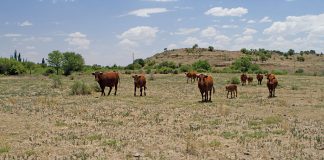Although official stock theft figures for the 2012 financial year have yet to be released, verified figures published in an SAPS stock theft newsletter in December show a substantial increase compared to 2011. According to the newsletter, more than 69 000 head of cattle valued at in excess of R552 million, almost 94 500 sheep worth R122,79 million and 40 078 Boer goats valued at R60,12 million were stolen in 2012.
In addition, nearly 2 500 pigs (worth R2,98 million) and 110 ostriches (R330 000) were also stolen. These figures were described as ‘unbelievable’ and ‘shocking’ by Eastern Cape Red Meat Producers Organisation (EC RPO) chairperson Dr Pieter Prinsloo, who added that they could largely be attributed to the fact that existing measures were not strict enough to deter stock thieves.
He also said the information was released to the industry much too late. Other factors contributing to the high incidence of stock theft include “increasing joblessness, social and welfare decay and the lack of a proper education system that empowers people to fend for themselves and even become entrepreneurs,” said Prinsloo. “Stock theft is a relatively easy way in which to generate an income and is increasingly becoming an ‘industry’ that involves syndicates.
“Politicians have to be made aware of the seriousness of the matter. A political will to combat this scourge has to be cultivated,” said Prinsloo. “We will never be able to stop stock theft completely, but there are many things that we can do to effectively curb and control it,” he said, adding that there was a good relationship between the industry in the Eastern Cape and the SAPS stock theft units.
He also said research was being done into introducing a toll-free number that would be funded by the commodities to assist with the gathering of information relating to stock theft cases, as the police informant system was reportedly no longer effective.
“Producers, however, have to realise that they also have to adhere to certain requirements to curb stock theft. Co-operation and the application of legislation regarding the identification and transport of livestock are extremely important,” said Prinsloo.
The co-ordinator of the Eastern Cape SAPS stock theft units, Captain MS Rute, said the stock theft figures for 2012 still had to be ratified by the minister of police and would be made available in June.











